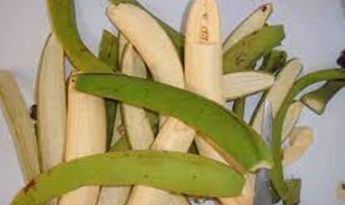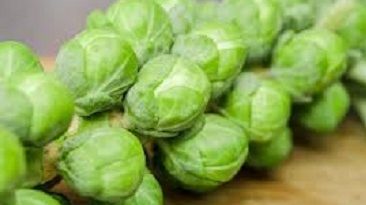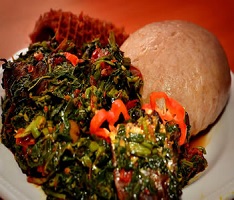Stomach Ulcer and The Nigerian Diet ~ Foods to Eat & Avoid
Stomach Ulcer and The Nigerian Diet ~ Foods to Eat & Avoid

Ulcers, also known as gastric ulcers, are painful lesions on the lining of the stomach. When the thick coating of mucus that protects your stomach from digestive fluids is weakened, stomach ulcers develop.
This permits the digestive acids to eat away at the stomach’s lining tissues, resulting in an ulcer.
Ulcers are a common source of pain for people who suffer from them. The symptoms may be minimal in some persons, but they are severe in others, necessitating emergency medical intervention.
Related >>>>
What Causes Stomach Ulcer – Stomach Ulcer and The Nigerian Diet
Spicy foods do not cause ulcers, contrary to common perception. Ulcers are caused by one of two things.
- an infection with the bacterium Helicobacter pylori (H. pylori)
- long-term use of nonsteroidal anti-inflammatory drugs (NSAIDs), such as aspirin, ibuprofen, or naproxen
Ulcer Signs and Symptoms
Every illness has symptoms. The following are the most prevalent symptoms of ulcers:
- Burning stomach pain
- Heartburn
- Bloating
- Fatty food intolerance
- Nausea
Symptoms in more severe situations include:
- Blood in the vomit
- Feeling light-headed (faint
- Breathing difficulty
- Stools with dark blood
- Loss of weighing
It’s vital to keep in mind that some ulcer patients don’t display any signs or symptoms. Ulcer patients’ suffering, on the other hand, can be alleviated by eating the correct meals.
Stomach Ulcer and The Nigerian Diet
Although ulcers are a dangerous intestinal illness, they can be controlled and healed. Avoiding specific meals that may aggravate the discomfort is one strategy to manage the ulcer and begin the healing process.
Spicy foods, such as those containing a lot of pepper, fatty foods, and milk should all be avoided because they require more digestive acid secretion to break down.
Also, avoid smoking and drinking alcohol, since the former can cause bacterial infection in the intestinal lining and the latter can irritate the mucous lining of the stomach, producing digestive acid release.
Nigerian Foods to Avoid if You Have a Stomach Ulcer – Stomach Ulcer and The Nigerian Diet
You may need to avoid foods that are acidic, spicy, or heavy in fat. Not all foods have the same effect on everyone.
You’ll need to figure out which meals aggravate your symptoms and minimize them. Some meals can aggravate the symptoms of an ulcer or gastritis:
The following are some foods that may worsen ulcer or gastritis symptoms:
Beverages to avoid: Stomach Ulcer and The Nigerian Diet
- Whole milk and chocolate milk
- Hot cocoa and cola
- Any beverage with caffeine
- Regular and decaffeinated coffee
- Peppermint and spearmint tea
- Green and black tea, with or without caffeine
- Orange and grapefruit juices
- Drinks that contain alcohol
- Spices and seasonings to avoid:
- Black and red pepper
- Chili powder
- Mustard seed and nutmeg
- Other foods to avoid:
- Dairy foods made from whole milk or cream
- Chocolate
- Spicy or strongly flavored cheeses, such as jalapeno or black pepper
- Highly seasoned, high-fat meats, such as sausage, salami, bacon, ham, and cold cuts
- Hot chiles and peppers
- Tomato products, such as tomato paste, tomato sauce, or tomato juice
What meals and beverages am I allowed to consume? Stomach Ulcer and The Nigerian Diet
Foods to include in your diet if you’re suffering from a stomach ulcer
- Consume a wide range of nutritious foods from all dietary groups.
- Consume fruits, vegetables, whole grains, and dairy products that are fat-free or low-fat. Whole-wheat bread, cereals, pasta, and brown rice are examples of whole grains.
- Lean meats, fowl (chicken and turkey), fish, beans, eggs, and nuts are all good choices. Unhealthy fats, salt, and added sugar are all avoided in a healthy meal plan.
- Olive oil and canola oil are good sources of healthy fats. For more information on a healthy food plan, consult your nutritionist.
Further guidelines that may be beneficial? Stomach Ulcer and The Nigerian Diet
- Avoid eating too close to bedtime. At least 2 hours before bedtime, stop eating.
- Eating small, frequent meals is a good idea.
Small, regular meals may be easier on your stomach than huge meals.
Bottom Line on Stomach Ulcer and The Nigerian Diet
When the gut lining has been inflamed, it is not advisable to ingest spicy foods. Instead, eat things that will help to relieve the sore and won’t irritate the lining.
As an ulcer patient, make sure you eat on time and avoid spicy foods to speed up your recovery by avoiding aggravating the sore in your gut lining or upper stomach (duodenum)


